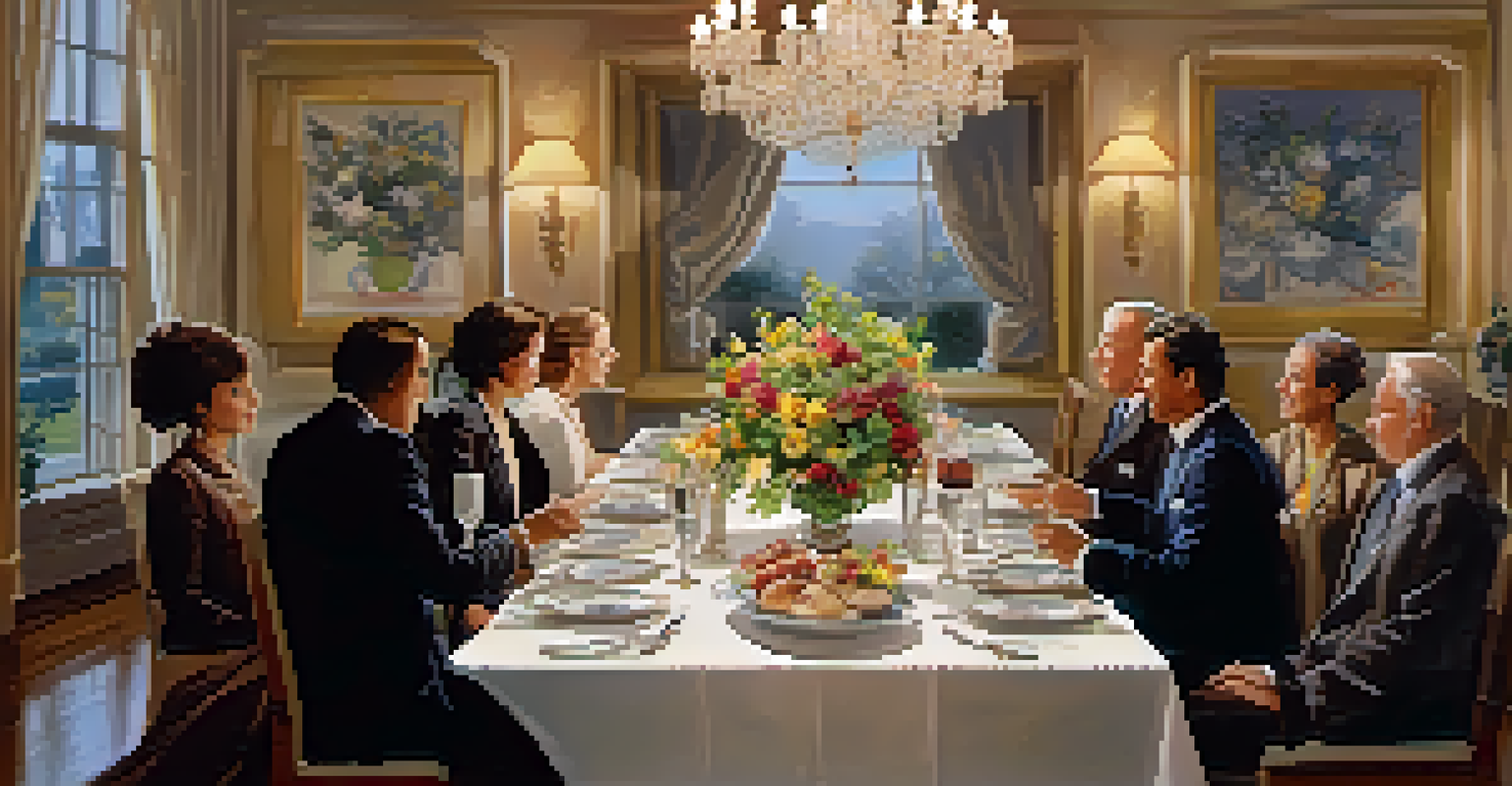Cultural Etiquette Tips for Business Travelers Worldwide

Understand the Importance of Greetings in Different Cultures
When traveling for business, the way you greet someone can set the tone for your meeting. In some cultures, a firm handshake is standard, while in others, a bow or a nod is more appropriate. Knowing how to greet your counterpart can show respect and help build rapport.
The single biggest problem in communication is the illusion that it has taken place.
For instance, in Japan, bowing is a sign of respect, and the depth of the bow can indicate the level of respect you are showing. In contrast, in the United States, eye contact during a handshake is considered a sign of confidence. Understanding these nuances can prevent misunderstandings and establish a positive working relationship.
Taking the time to learn the local greeting customs demonstrates your willingness to engage and respect their culture, which can go a long way in building trust and opening doors.
Dress Code: Dressing for Success Around the Globe
First impressions matter, especially in business. Different cultures have varying expectations regarding dress codes, so it's essential to research what is considered appropriate attire. In some countries, such as Italy, fashion is paramount, while in others, like India, traditional clothing may be preferred.

For example, in many Middle Eastern countries, business attire is generally conservative, with men often wearing suits and women opting for long sleeves and skirts. Conversely, in Silicon Valley, the tech hub in the U.S., casual attire may be perfectly acceptable. Knowing what to wear can help you blend in and be taken seriously.
Greetings Show Cultural Respect
Understanding local greeting customs can set a positive tone for business interactions and demonstrate respect.
When in doubt, it's safer to dress more formally for initial meetings. You can always adjust your attire based on the office culture once you arrive.
Communication Styles: Direct vs. Indirect Approaches
Understanding how different cultures communicate can significantly enhance your business interactions. In some cultures, like the United States and Germany, direct communication is valued, where people appreciate straightforwardness and clarity. Meanwhile, in countries like Japan and many parts of the Middle East, indirect communication is more common, where politeness and nuance are prioritized.
When in Rome, do as the Romans do.
For example, if a Japanese colleague says, 'That might be difficult,' they may actually mean, 'No, we can't do that.' Recognizing these subtleties can help you respond appropriately and avoid misinterpretations.
Adapting your communication style to suit the cultural context shows respect and can foster better relationships, making it easier to reach agreements.
Body Language: Non-Verbal Cues Matter
While words convey meaning, body language can speak volumes, sometimes even more than spoken language. Different cultures interpret body language differently; for instance, in Western cultures, maintaining eye contact is often seen as a sign of confidence, while in some Asian cultures, it can be considered rude.
For example, crossing your arms might be interpreted as defensive in one culture, while in another, it may simply be a comfortable position. Being mindful of these non-verbal cues can help you avoid potential pitfalls during business interactions.
Dress Appropriately for Business
Researching dress codes can help you make a strong first impression and ensure you fit in with local expectations.
Observing how your counterparts use body language can also provide insights into their feelings and attitudes, allowing for more effective communication.
Dining Etiquette: Navigating Meals with Grace
Business meals can be an essential part of relationship building, so paying attention to dining etiquette is crucial. Different cultures have unique dining customs, and knowing them can help you avoid faux pas. For instance, in China, it's customary to wait for the host to start eating before you begin your meal.
In contrast, in countries like France, the focus is on enjoying the dining experience, and meals often take place over several hours. Understanding these customs can create a more harmonious dining atmosphere and demonstrate respect for your hosts.
Additionally, being aware of local table manners, such as which utensils to use or how to toast properly, can make a significant difference in how your business meal is perceived.
Gift Giving: When and What to Give
Gift giving can be a delicate affair in business settings, with different cultures having distinct expectations. In many Asian cultures, offering a gift is a sign of goodwill and respect, but be mindful of the type of gift you give. For example, in Japan, gifts are often wrapped beautifully and presented with both hands.
Conversely, in countries like Germany, it may be more appropriate to avoid gifts during initial business meetings. Understanding these cultural nuances will help you avoid unintentional offense and show your thoughtfulness.
Punctuality Reflects Professionalism
Being aware of cultural attitudes towards time can enhance your reputation and prevent misunderstandings in business settings.
If you’re unsure about the appropriateness of a gift, consider bringing something representative of your home country, like local snacks or artisanal products, as a gesture of goodwill.
Punctuality: Respecting Time Across Borders
Time perception varies significantly across cultures, and punctuality can be a matter of great importance. In countries like Germany and Switzerland, being on time is non-negotiable and reflects professionalism. On the other hand, in more relaxed cultures, such as in parts of Latin America, a more flexible approach to time may be acceptable.
For instance, in India, arriving 15-30 minutes late to a meeting might not raise eyebrows, while in Japan, being even a minute late could be seen as rude. Understanding these differences can help you plan your schedule and avoid potential misunderstandings.

Being punctual in cultures that value it shows respect for others' time and can positively influence your professional reputation.